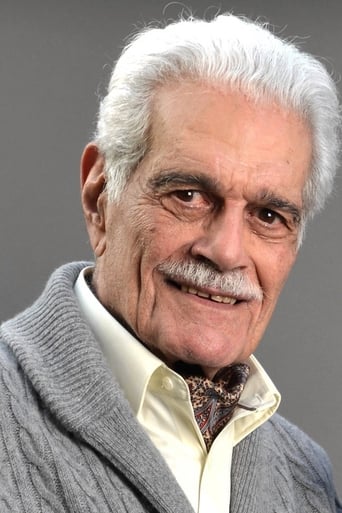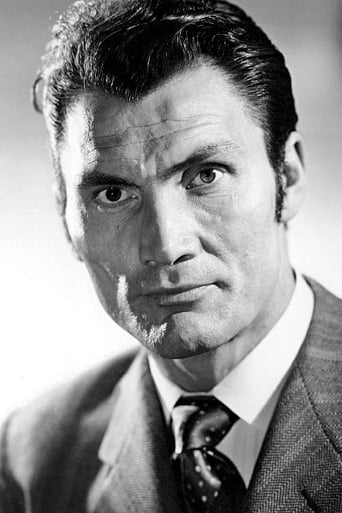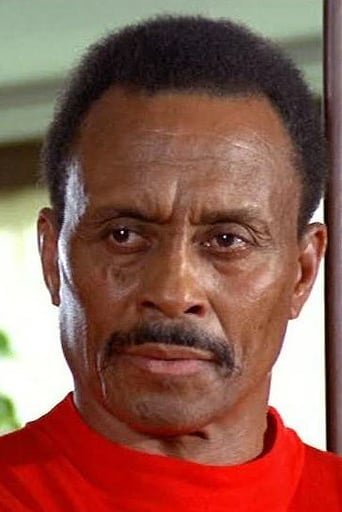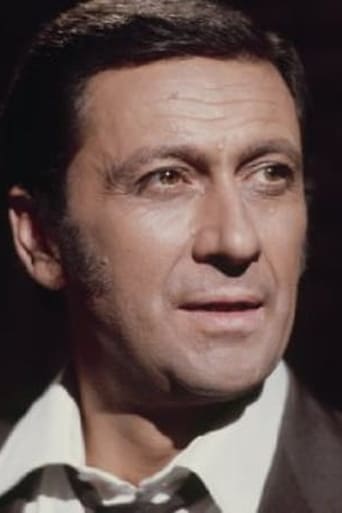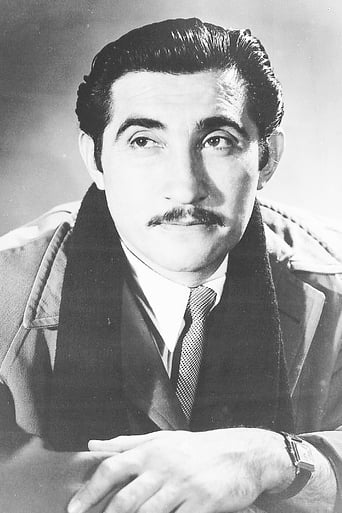Maidexpl
Entertaining from beginning to end, it maintains the spirit of the franchise while establishing it's own seal with a fun cast
Brenda
The plot isn't so bad, but the pace of storytelling is too slow which makes people bored. Certain moments are so obvious and unnecessary for the main plot. I would've fast-forwarded those moments if it was an online streaming. The ending looks like implying a sequel, not sure if this movie will get one
Zlatica
One of the worst ways to make a cult movie is to set out to make a cult movie.
Staci Frederick
Blistering performances.
clanciai
It is interesting to note that the film was made only the year after his death. I remember when it was issued - there was very much hush-hush about it, and Richard Fleischer would not publicly reveal the sources of many arguable details of the script. The account is convincing enough, and there has been no protests against any untruthfulness. Omar Sharif as Che makes a convincing character of great controversy and self-contradictoriness, while it is possible at the same time to understand him - why he abandoned the Castro regime as a hopeless case of either becoming a puppet of Russia or of America, to try to make an inter-South-American revolution of his own. Of course, it was utterly unrealistic, which he failed to realize, having no detachment but rather an obsession with any revolution at any cost.Jack Palance has been criticized for his almost caricature of Castro, but he has made the best of it, Castro was actually like that, and Palance has studied him carefully.There is nothing wrong with the film as film either. The quality has its flaws, but the direction and cinematic realization is practically flawless.The greatest credit of the film, though, is the unmasking of Che as the tragic megalomaniac he was, a sick man gone wrong from the beginning and getting stuck in a vicious circle of violence going irrevocably from bad to worse, his pride outgrowing him into arrogance and inhumanity leading only one way into self-destruction, a man obsessed with constantly worsening his own tragedy, made clear enough by Omar Sharif.In brief, an underrated film of great documentary objectivity charting the psychology of man at his most destructive.
kayaker36
It was brave of the makers of this film to release it in 1969 when the U.S. war against Communist North Vietnam still raged. It does depict a **failed** attempt to foment revolution in the Third World and on balance it is a negative portrayal of a professional revolutionary. Given the times, any depiction of Guevara and Fidel Castro showing them as human was a bold move. In the U.S. most publicity has been garnered by Castro's bitterest enemies (those wonderful folks who brought you the **Elian** affair). Fidel has his supporters here, and around the world, also. Many of them seem to have posted comments at this site. The title of this movie is "Che!", not "Fidel!". Naturally, Castro's role will be a secondary one, a decision Castro's supporters seem unable to forgive.Everyone knows how the story ends, and that is where the movie starts, with Che Guevara's body being transported by helicopter down from the one-room schoolhouse where he was apparently executed after being wounded and captured by an elite unit of the Bolivian Army. It's a strikingly beautiful, almost elegiac shot with the slopes of the Andes stretching to the horizon in the background. The movie proceeds in a semi-documentary style, the story told in flashbacks by Guevara's old Comrades (and some old enemies). Some of the Comrades, visibly aged, give their interviews from prison cells.While Guevara's early life in Argentina isn't depicted, there is a soundless, striking scene early in the film of Cuban women protesting the dictatorial Battista regime, only to be massacred by Cuban soldiers ("We heard you calling, Cuba and we came...") that well explains what motivated young Ernesto and other youths from Latin America's upper classes to join the Cuban revolutionaries. From there we trace Che's transformation from idealistic medical graduate to hardened guerrilla fighter--summed up in a moment when in the heat of battle he picks up a rifle and leaves his doctor's kit on the ground.I also disagree with the many criticisms of the portrayal of Fidel Castro by Jack Palance. Palance's movie career was distinctly on the down slope when he accepted the part, but he always had **macho**. Here he captured the 6'4" Castro's dominating physical presence in a land of mostly short statured people. It is a real pity that this motion picture has completely disappeared. There is not a commercial version of it available anywhere. In the future, perhaps after Omar Sharif has died, this portrait of one of the twentieth century's most charismatic figures will be recognized as the rare achievement it is.
sol
Superficial biographical flick about international revolutionary and Castro's second in command Che Guevara, Omar Sharif. The movie gives you the impression that if it wasn't for Che Fidel Castro, Jack Palance, would never have taken over Cuba in what's called the Great Peasant Revolution of 1959. Che, an Argentinian doctor and one-world revolutionary, did in fact land with Castro and his contingent of 82 men off the west coast of Cuba on December 2, 1956.After being ambushed by Batista's, the Cuban dictator, men only a dozen, including Che & Castro, survived. During the next two years in the Sierra Maestras mountains the dozen revolutionaries grew into the thousands. It was undoubtedly because of the leadership and knowledge of guerrilla tactics and warfare by Che that forced the besieged and defeated Batista to abandon his palace in Havana on New Years Eve 1959 and check out of the country. This left a victorious Castro & Co. to enter the capital city without as much as a shot being fired on New Years Day.The movie shows how Che became a ruthless and blood-thirsty disciplinarian to the troops. Che as a command-ante is shown without as much as flinching ordering the execution of traitors, many times in the movie doing it himself, that even his leader Fidel didn't have the heart to do. After the Castro take-over of Cuba Che held around the clock military trials and executions of former Batista political and military personal. This even shocked and outraged some of the most battle-hardened Cuban revolutionaries. Che's excuse for his cold-blooded policies was that if he didn't show the people that he was ridding the country of Bitista's war criminals they would do the job for him themselves. This would result in many innocent, far more then those proved guilty by his military tribunals, people ending up being slaughtered by rampaging mindless and vengeful mobs.The movie "Che" goes on to show that it was Che who gave Fidel Castro the idea of not only declaring himself a Marxist which outraged the United States Government and turned it against him but in establishing diplomatic and military relations with the Soviet Union. This lead to the 1961 fiasco, for the US and Free Cubans, known as "the Bay of Pigs". Were also show that it was Che who planted the idea in Fidel's head to invite the Soviet Union to use Cuba as a base for it's nuclear missiles. This irresponsible action, on Castro and the USSR's part, almost brought the world to the brink of nuclear war in the autumn of 1962.Feeling betrayed by his friend Fidel and his Soviet allies for backing down to the US during the Cuban Missile Crisis Che, calling Castro a Soviet dupe, decided to leave the safety of Cuba and go out in the dangerous hills and valleys of Bolivia to start a revolution of his own. Since in reality Che left for Bolivia in late 1966 or early 1967 the event, in the movie, of Che's break with Castro,in 1962, seems a bit premature.In Bolivia Che lost his revolutionary persona as well as his ability to rally peasants, like he did in Cuba ten years earlier, to his aid. Going against his own writings and principles about how a guerrilla/revolutionary war should be fought had Che's men, mostly Bolivian rebels, desert him because of his mindless and brutal tactics to whip up both support and recruits among the peasant population.The hard life as a guerrilla fighter coupled with his deteriorating asthmatic condition, smoking Cuban cigars didn't help Che's asthma either, took a heavy toll on Che's health. Fate eventually caught up with Che as well as the Bolivian army and on October 9, 1967 in an ambush at the Quebrada del Yuro ravine the life-long revolutionary was shot and captured. Later, on orders from the Bolivian high command, Che was executed as if he were just a common criminal not the man who's name became synonymous with world as well as local revolution over the last thirty five years.More of a curiosity piece then anything else "Che" has it's share of unintentional laughs. Omar Sharif in many of the battle and strenuous jungle mountain climbing scenes in the movie is heard breathing and wheezing, because of his asthma condition, like someone making an obscene phone-call. The final scene when Che's confronted by an elderly Bolivian peasant berating him about how his guerrilla actions in and around his village have caused his goats to cease from giving milk. The scene looks like something straight out of a Mystery Science 3000 parody of an unintentionally and hilariously funny movie. Jack Palance as Fidel Castro with his fake plastic nose and acting as if he'd be lost without Che makes the guy, Castro, look like a totally helpless dolt as well as alcoholic buffoon. Castro who seems to drink as many bottles of booze as the cigars that he smokes that it's a wonder that he's still around now; some forty after Che left him to run Cuba on his own! At the time of the movies release in the spring of 1969 there were plans by many Cuban/Americans to demonstrate in front of the movie-houses that were to be playing "Che". It wasn't until after word of mouth, as well as critics reviews, about how awful the film really was that it was decided that "Che" instead of ingratiating Castro's Cuba was in fact the United States revenge for it's defeat by Castro's army and militia at "the Bay of Pigs"!
mtr0118
This picture about the life of the Argentinian rebel was really boring throughout the movie. Most of the traits Omar Shariff represented didn't match Guevara's personality. Though Shariff is better looking than the real Guevara, some of his outbursts made this movie look bad. Never did he steal or torture the Bolivian peasants when he roamed Bolivia. Al Pacino would have done a better job with this picture though Omar is a legend and needed a letback or break. The only cool choice on this picture is Jack Palance representation of the old Cuban jerk who messed up that island's history for five decades.Good thing his days are numbered and the old bum has quit.
